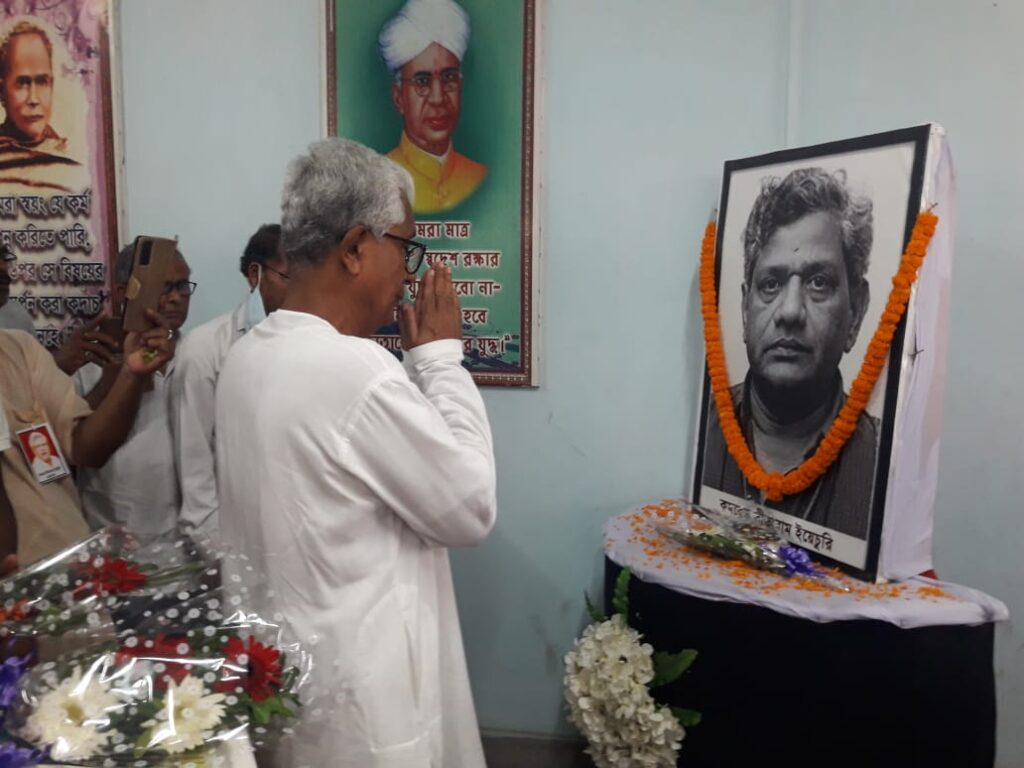Former Chief Minister Manik Sarkar has vehemently criticized the Bharatiya Janata Party (BJP) for its ambitious “One Nation, One Election” initiative. This statement came during a condolence meeting organized in memory of the late Communist Party of India (Marxist) leader Sitaram Yechury’s mother in Agartala. Sarkar’s remarks have reignited the debate surrounding the constitutional implications and the potential impact of this proposal on the democratic fabric of India.
Understanding the “One Nation, One Election” Proposal
The “One Nation, One Election” proposal seeks to synchronize elections for the Lok Sabha and state assemblies, intending to hold them simultaneously across the country. Proponents argue that this would streamline the electoral process, reduce election-related expenditures, and enhance governance efficiency by minimizing the frequency of elections. However, critics, including political leaders from various parties, argue that such a move undermines the federal structure enshrined in the Indian Constitution.
Sarkar articulated his concerns regarding the proposal, stating that it poses a significant threat to the democratic ethos of the country. He asserted that elections at the state and national levels serve different purposes and cater to distinct political narratives. “The essence of democracy lies in allowing states to express their unique issues and priorities through their electoral processes,” Sarkar emphasized.
Constitutional Concerns
The former Chief Minister elaborated on the constitutional challenges posed by the BJP’s plan. He pointed out that the Constitution of India provides states with the autonomy to conduct their elections, reflecting the diverse political, social, and economic realities across different regions. By centralizing the electoral process, Sarkar warned that the BJP’s initiative could infringe upon this autonomy, effectively diminishing the states’ ability to address local concerns.
Sarkar’s apprehensions resonate with the sentiments of various opposition parties, who fear that the “One Nation, One Election” plan could be used as a tool to consolidate power at the center, potentially marginalizing regional parties and voices. The concern is that smaller and regional parties, which often play a critical role in state politics, could find it increasingly challenging to compete against the larger, more resource-rich national parties.
Political Implications
The timing of Sarkar’s comments is significant, considering the growing discontent with the BJP’s governance in Tripura. Since coming to power in the state, the BJP has faced criticism over issues such as unemployment, inflation, and deteriorating law and order. Sarkar’s remarks highlight the opposition’s strategy to rally support against the BJP by framing the “One Nation, One Election” initiative as part of a broader narrative of overreach and centralization.
Moreover, Sarkar’s criticism aligns with the broader opposition movement, which seeks to unite various political factions against the ruling BJP. This sentiment was echoed by several other leaders at the condolence meeting, who voiced their concerns about the erosion of democratic principles and the need for a collective response to safeguard the Constitution.
Responses from BJP and Supporters
In response to Sarkar’s statements, BJP leaders have defended the “One Nation, One Election” initiative, arguing that it is a necessary reform to improve governance and reduce the political instability that often accompanies frequent elections. They claim that the plan has garnered widespread support and that it will ultimately empower voters by making the electoral process more coherent.
BJP supporters assert that Sarkar’s criticisms stem from a fear of losing political relevance in a changing electoral landscape. They argue that regional parties must adapt to evolving political dynamics rather than resist reforms aimed at modernizing the electoral process.
Manik Sarkar’s condemnation of the BJP’s “One Nation, One Election” plan highlights the ongoing tensions between central and state authorities in India. As political parties gear up for future elections, the debate surrounding this initiative will likely intensify, with implications for the structure of Indian democracy itself. Sarkar’s call for a robust defense of constitutional principles resonates with many who fear that the proposed reforms may undermine the diversity and autonomy that characterize India’s federal system.
As Tripura prepares for its political future, the voices of leaders like Sarkar will play a crucial role in shaping public discourse around the importance of preserving democratic values. The challenge remains for the opposition to effectively mobilize support and articulate a clear vision that addresses the concerns of the electorate while standing firm against what they perceive as centralization of power.

